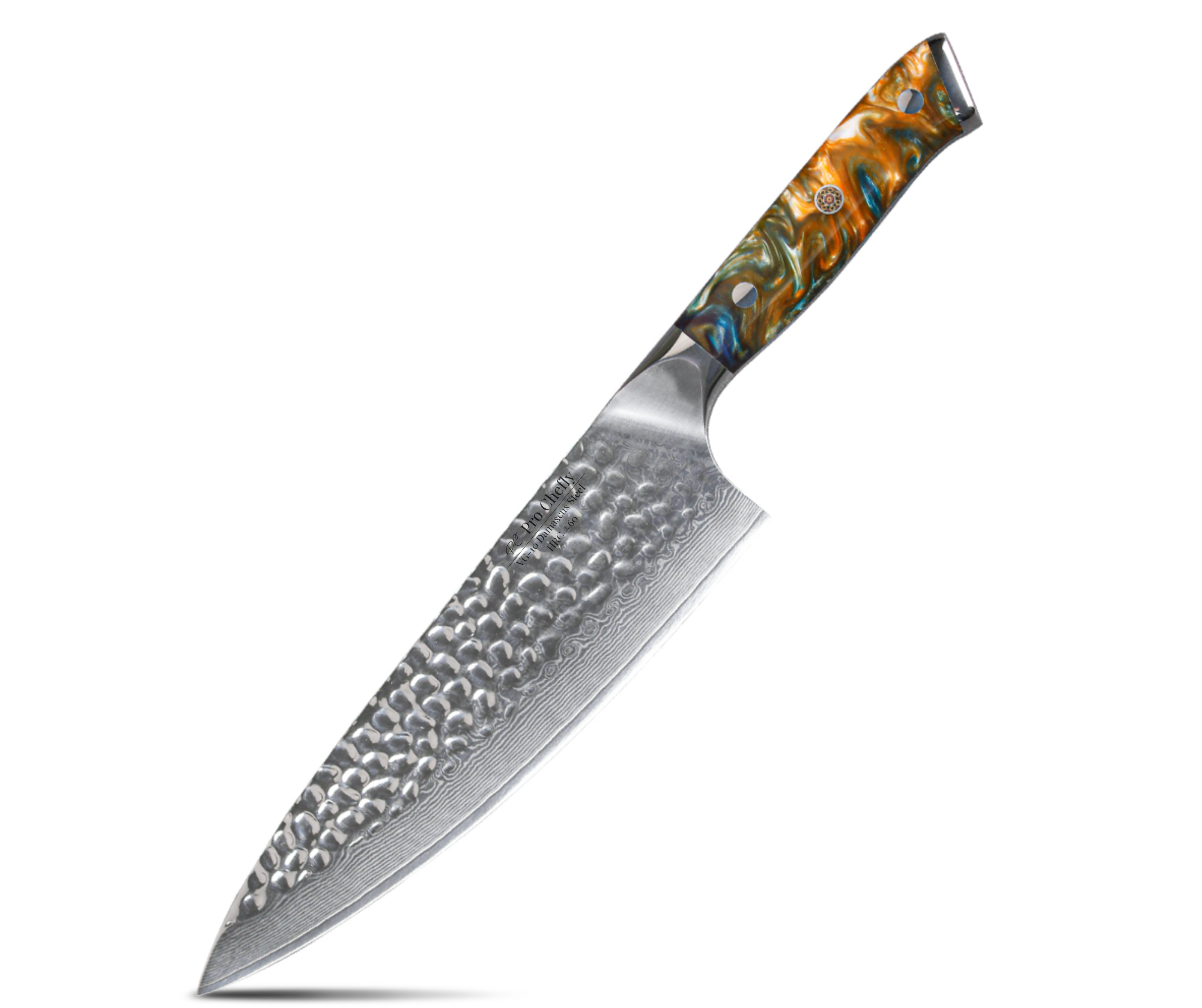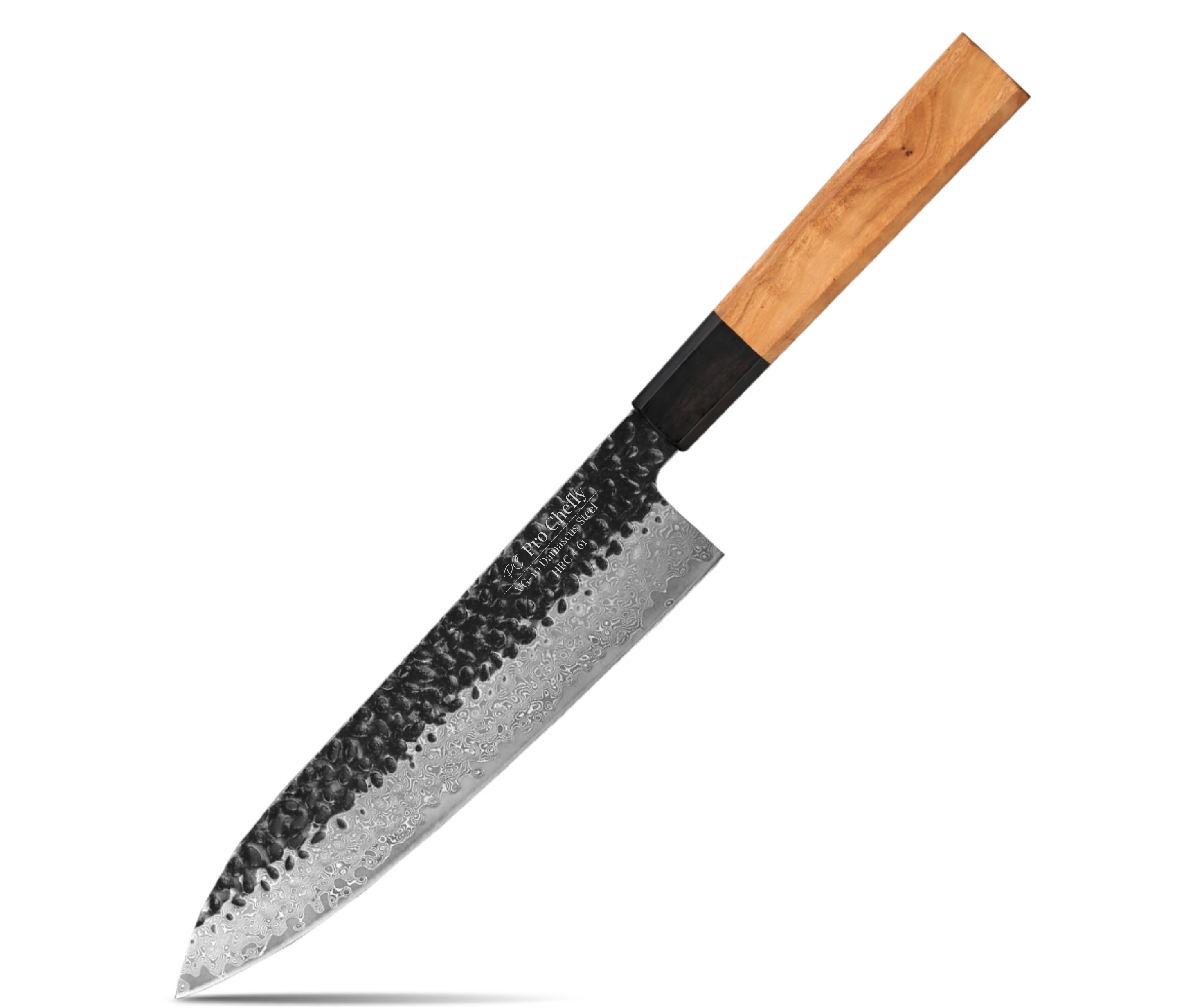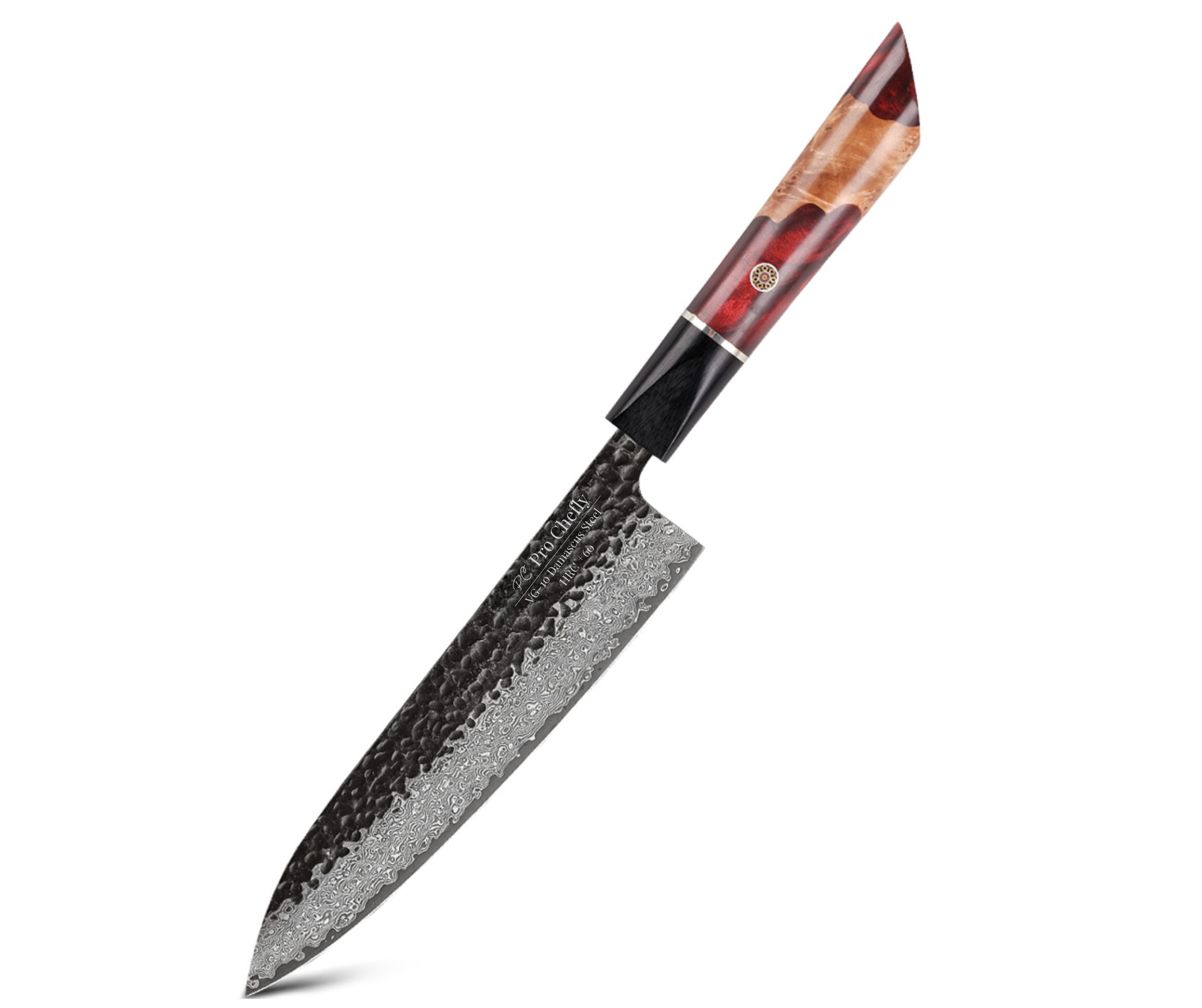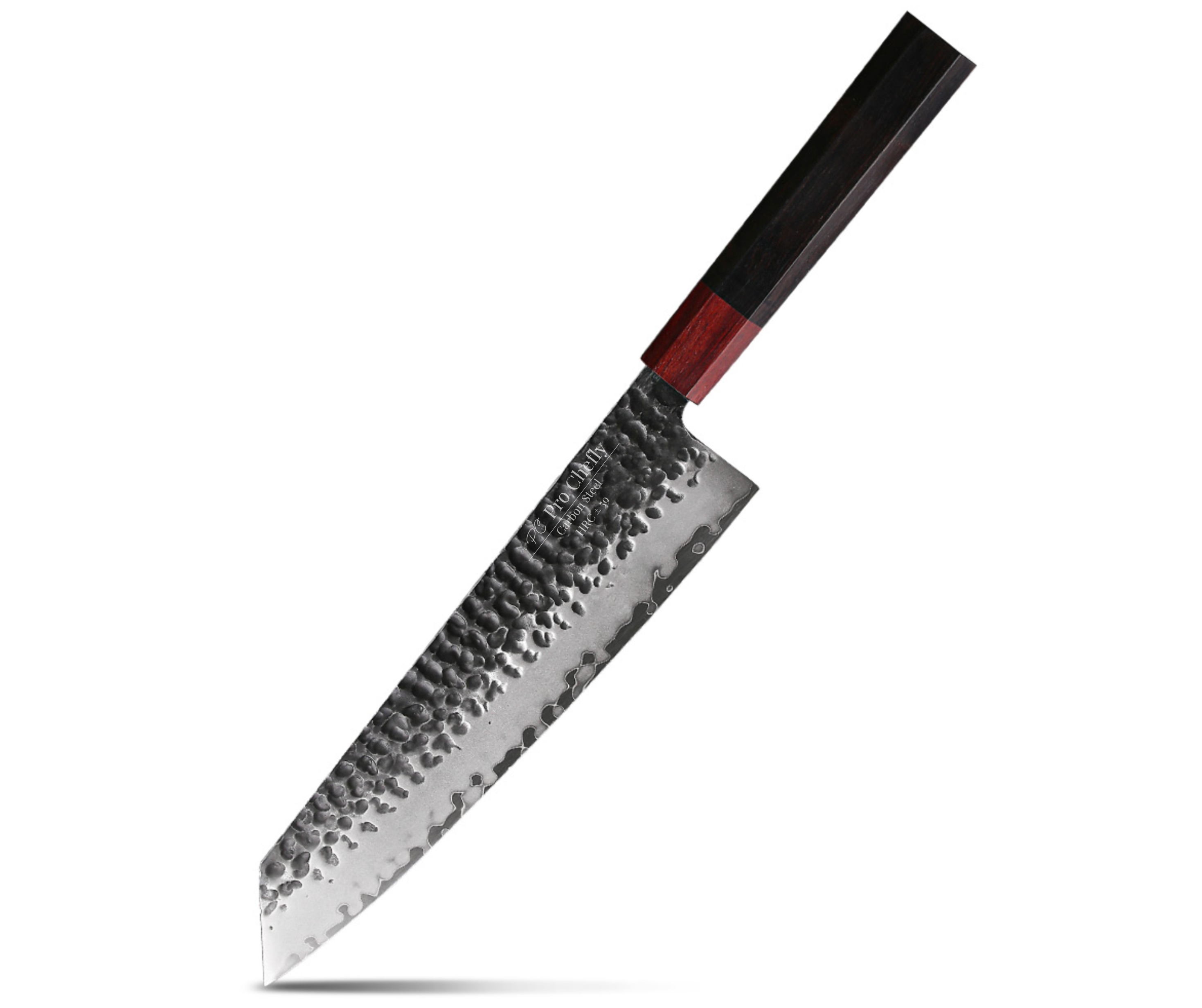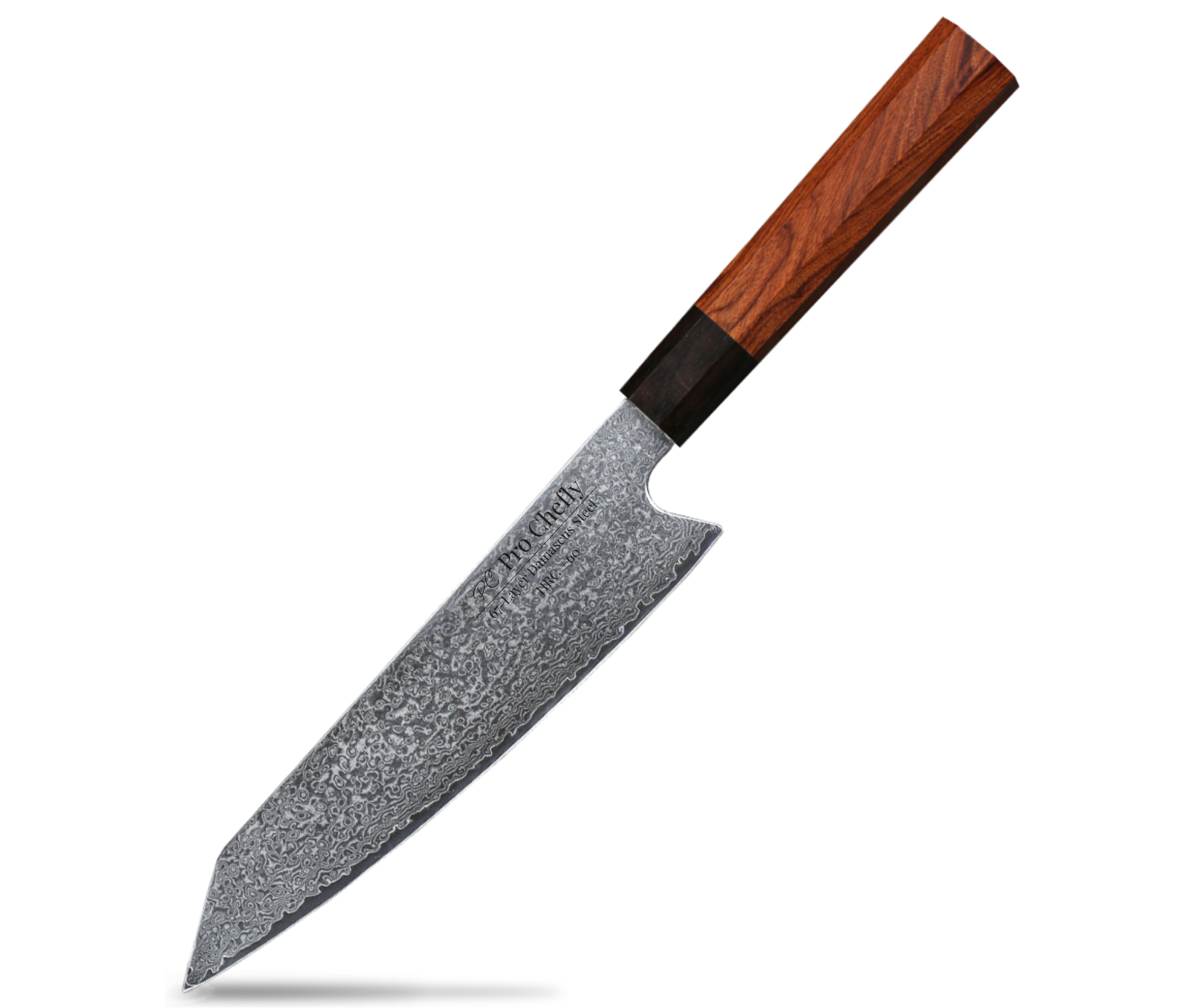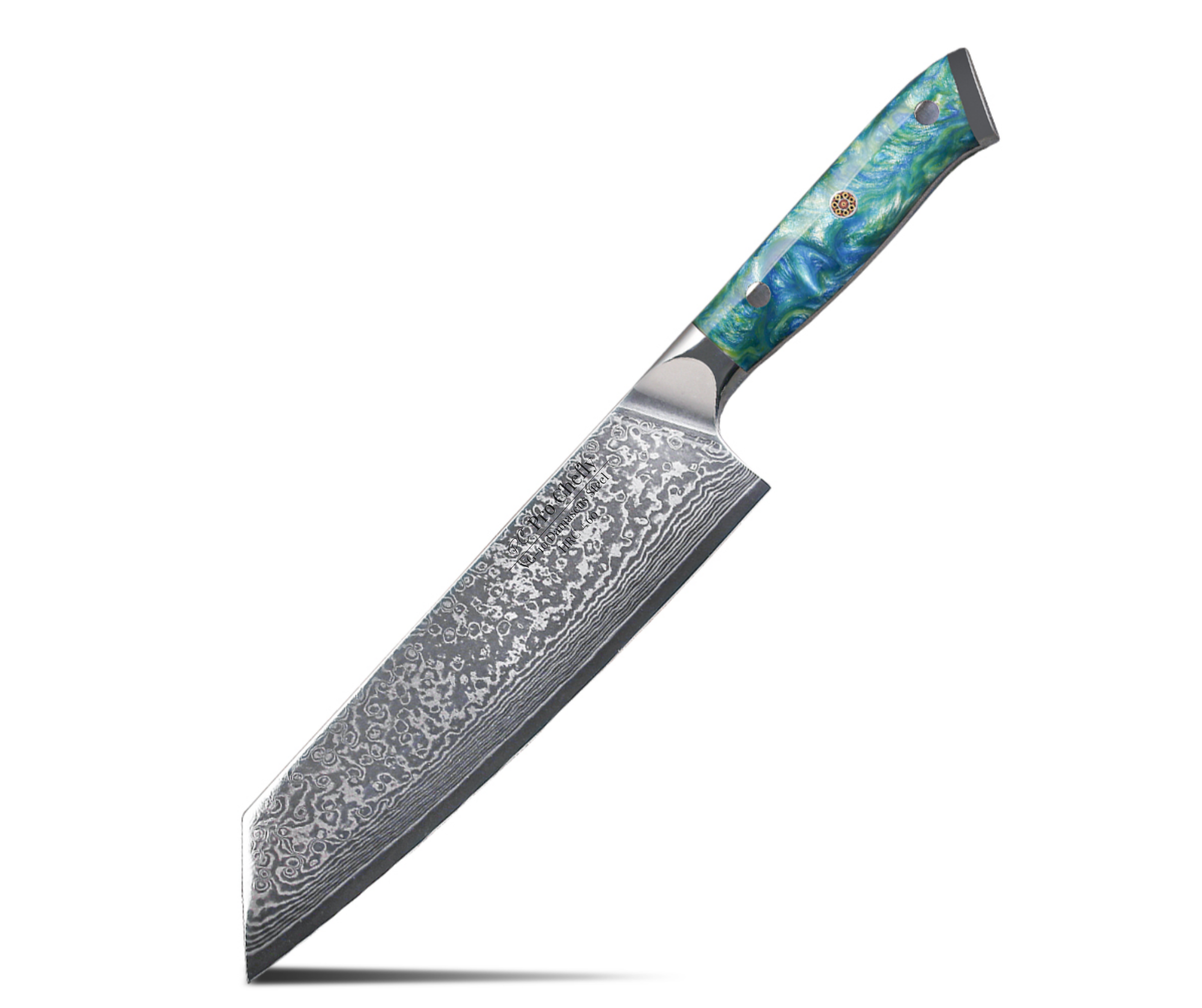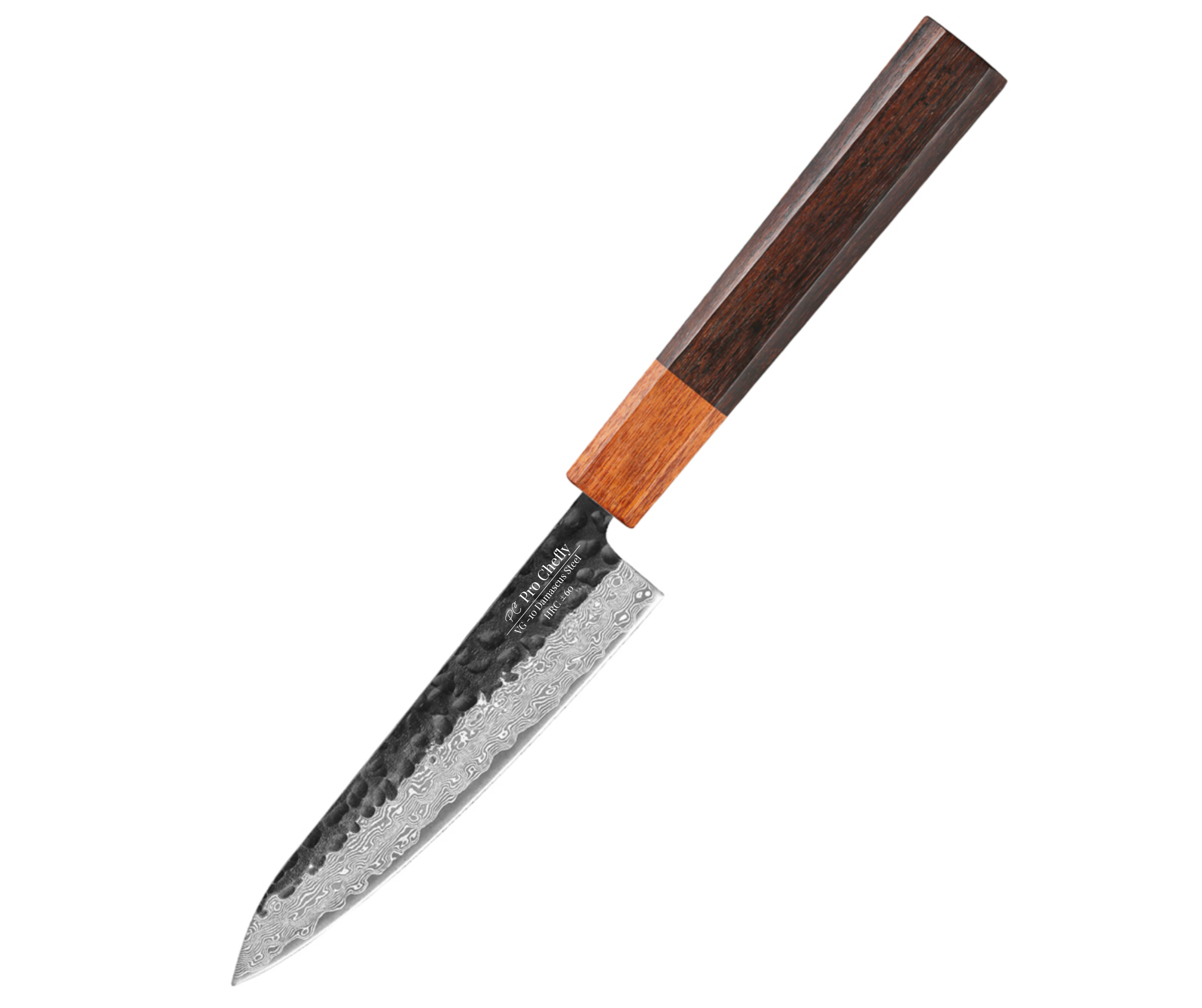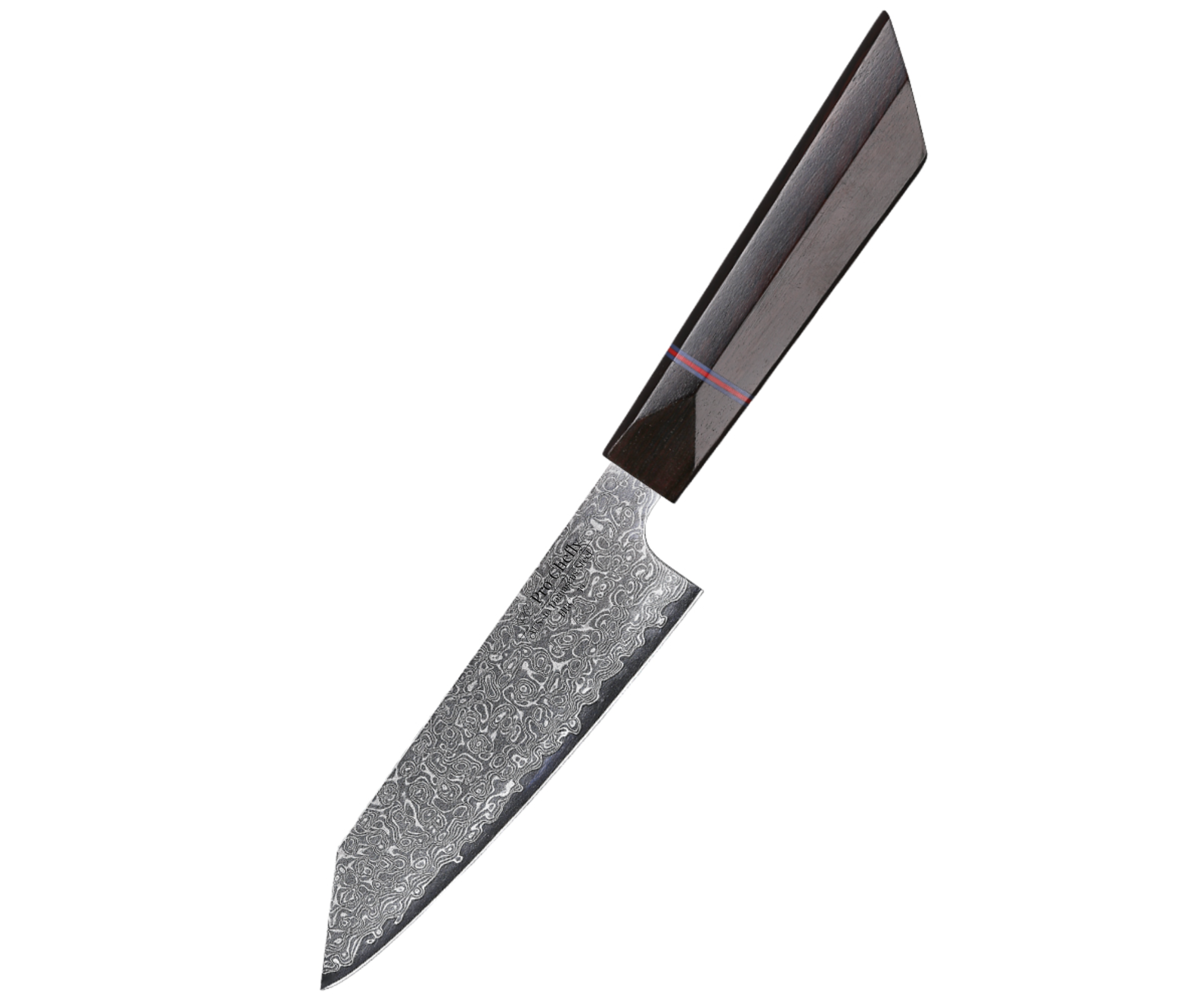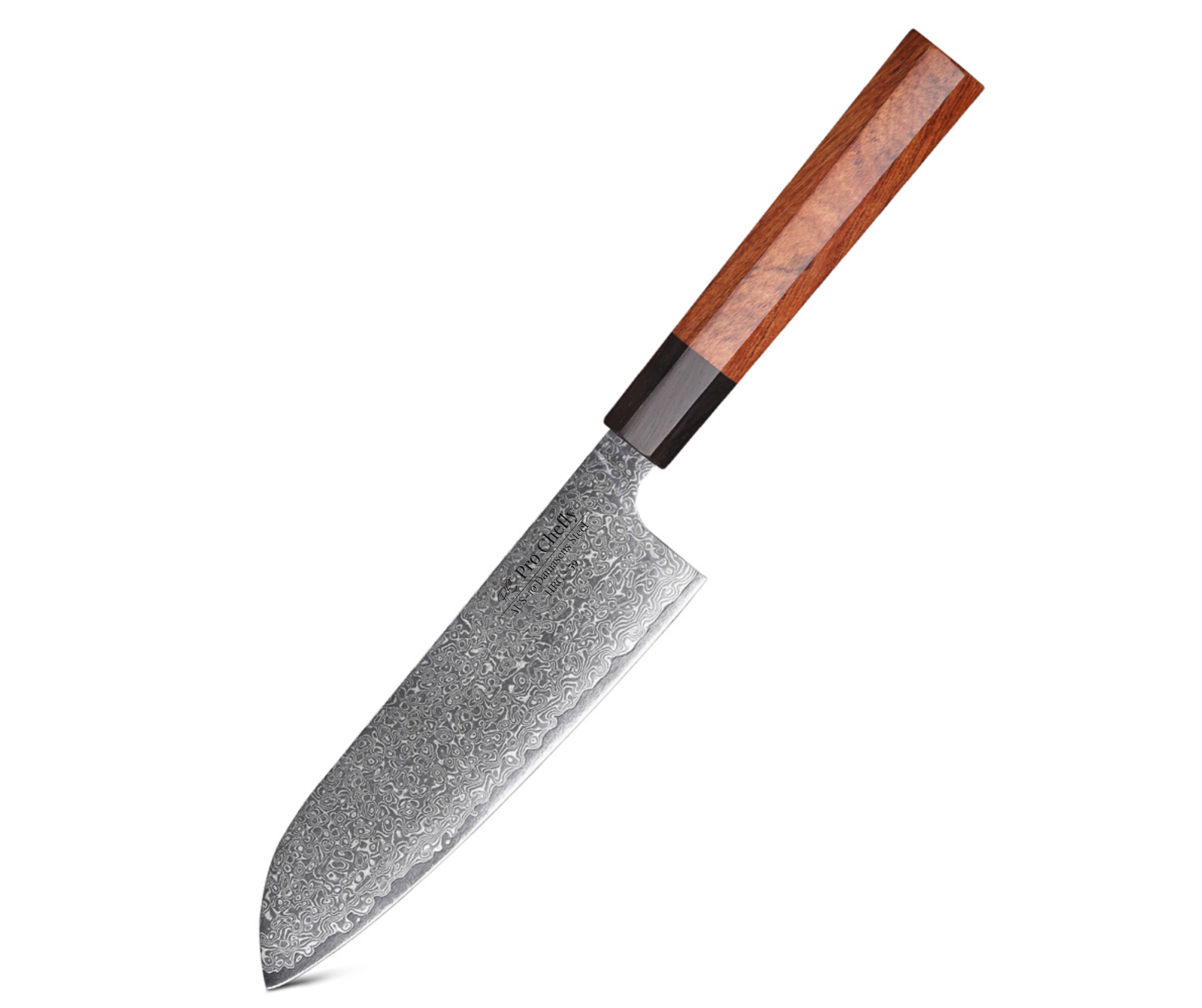Chef’s Overview
Dear Chefs, when autumn rolls in and the kitchen fills with hearty roasts and caramelized vegetables, the Santoku knife takes center stage. Known as Japan’s “three virtues” blade — for slicing, dicing, and mincing — it’s one of the most balanced and versatile knives you can own. But how does it really perform when it comes to the age-old kitchen divide: meat vs. vegetables? Today, we’re cutting straight into that answer with a little Pro Chefly precision.

The Story Behind the Santoku – Harmony in Motion
The Santoku was designed as a do-it-all kitchen knife for Japanese home cooks who needed one tool to handle everything from fish to daikon. Unlike the heavier Western Chef Knife, the Santoku is light, compact, and flat-edged — perfect for quick, downward cuts instead of rocking motions.
When I first picked up the 7" VG-10 Damascus Santoku Knife, I was amazed by its balance. It’s the kind of blade that doesn’t fight you — it flows with you. Every chop feels intentional. If you’ve read Santoku Knives vs Western Chef Knives – Breaking Down the Differences in Fall Cooking, you’ll remember that where the Chef Knife powers through, the Santoku glides.
The Anatomy of Performance – Santoku on Meat vs. Vegetables
Fall is the perfect testing ground for the Santoku. Between slow-cooked meats and earthy vegetables, you get to experience its range firsthand.
For Vegetables
The Santoku is an absolute master when it comes to plant-based prep. The 7" VG-10 Damascus Santoku Knife slices cleanly through squash, carrots, and onions without sticking — thanks to its thin profile and shallow Granton edge, which reduces friction.
If you’re making Autumn Perfection: Butternut Squash Soup with a Chef’s Touch, you’ll love how the Santoku turns prep into a rhythm — chop, slide, repeat. Every slice stays consistent, which means even cooking and perfect presentation.
The blade’s short height and sharp tip make it ideal for garlic, herbs, and smaller vegetables, too. There’s a reason I reach for it whenever I’m dicing ingredients for Cajun Pasta – A Chef’s Knife Guide to Bold Comfort Food — it handles quick, intricate cuts like a pro.
For Meat
Now, let’s talk protein. The Santoku handles boneless meats beautifully. Its sharp, slightly curved edge allows smooth slicing through chicken breast, pork tenderloin, or even thin beef strips for stir-fry.
Our 7" AUS-10 Damascus Santoku Knife gives you a bit more backbone for denser cuts. AUS-10 steel adds a touch more toughness than VG-10, so you can prep marinated meats or slice cooked roasts with ease. But note — the Santoku isn’t built for bones. If you’re breaking down large cuts, switch to the 8" VG-10 Damascus Chef Knife for that extra power.
We covered similar territory in Gyuto vs Chef Knife – Which Is the Best All-Purpose Knife for Holiday Prep, where finesse vs. force made all the difference. The same logic applies here: the Santoku is about elegance and accuracy, not brute strength.
The Steel Story – Why Pro Chefly Santokus Outperform
Both the 7" VG-10 Damascus Santoku Knife and 7" AUS-10 Damascus Santoku Knife are crafted from layered Damascus steel, giving you incredible edge retention and aesthetic beauty.
In How VG-10 Steel Balances Edge Retention and Durability, I explained why VG-10 offers that perfect hardness-to-toughness ratio — ideal for slicing delicate produce and soft proteins without dulling. AUS-10, meanwhile, leans toward toughness, giving it more forgiveness for heavier prep.
That’s why I keep both on my counter: VG-10 for finesse and AUS-10 for endurance.
Why the Santoku Belongs in Every Fall Kitchen
Autumn cooking is about contrast — tender meats, crisp vegetables, silky soups. The Santoku delivers harmony to that mix. Its lighter weight keeps your wrist happy during long prep sessions, and its balanced design ensures every ingredient gets the respect it deserves.
At Pro Chefly, we designed our Santokus to be true culinary multitaskers. Whether you’re prepping meat for Butter Chicken Done Right or vegetables for Gyuto vs Chef Knife – Which Handles Meat and Vegetables Better for Fall Stews, these knives carry the season’s warmth and precision in every cut.
The Final Slice – The Blade of Fall Balance
Dear Chefs, the Santoku isn’t just another knife — it’s the embodiment of balance. It bridges the gap between strength and sensitivity, letting you move effortlessly from meat to vegetables without switching tools.
So as the season of stews, roasts, and pumpkin everything begins, reach for your Santoku. Because when control meets craft, even the simplest slice feels like art.
Knife Collections
Shop the latest in Pro Chefly Damascus Knives
Chef's Notes
Stay up to date with the latest kitchen stories and recipes

- October 27, 2025
Dear Chefs, this one’s for the nights when autumn is in full swing — the air cool, the kitchen warm,...

- October 26, 2025
Dear Chefs, when the pumpkins are glowing and your countertop is dusted with sugar instead of flour, precision becomes the...

- October 20, 2025
Dear Chefs, can we talk about the real hero of fall breakfasts and cozy weekend lunches? It’s not the pumpkin...
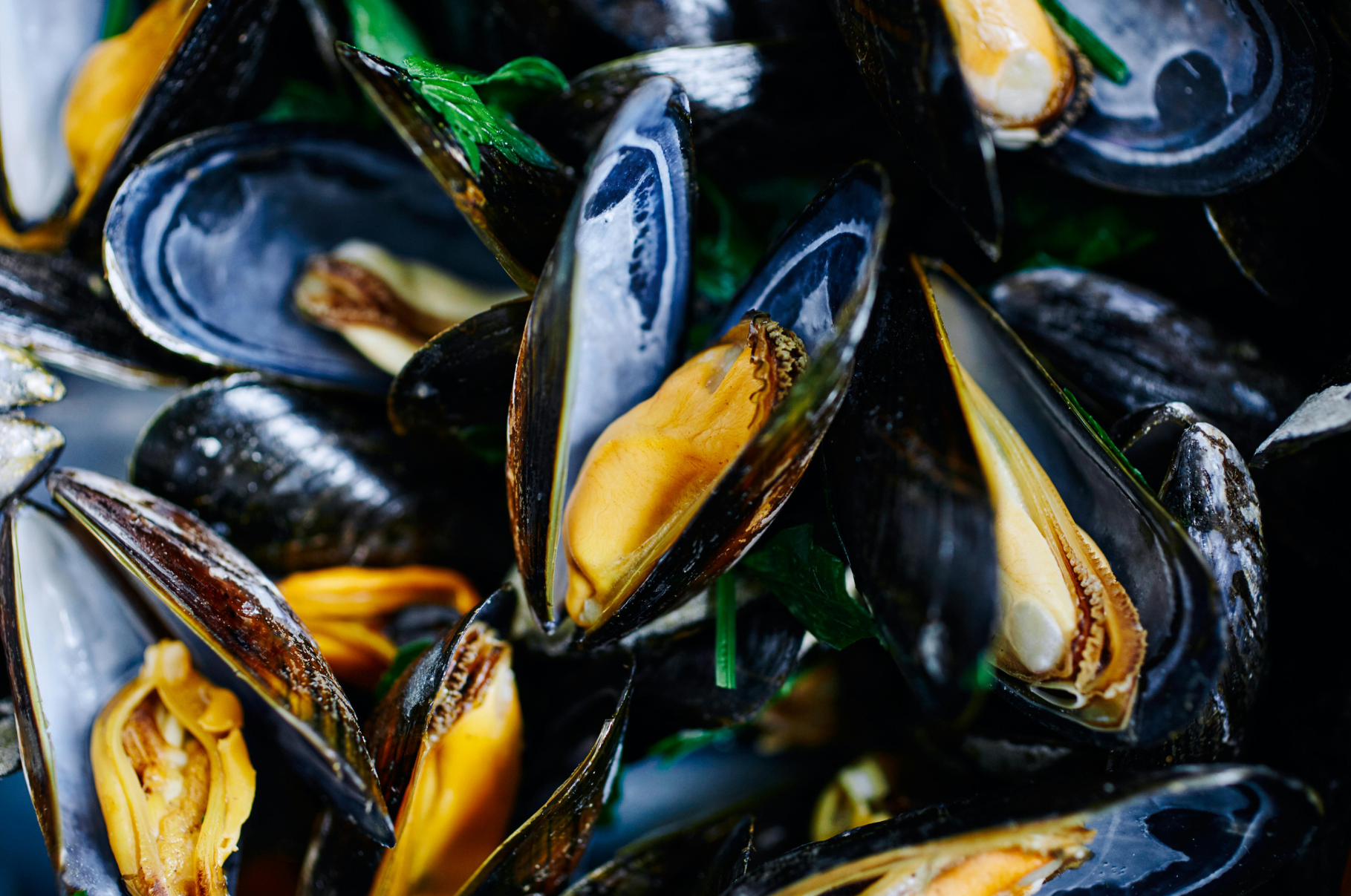
- October 12, 2025
Dear Chefs, this bistro-classic comes together in minutes: sweet mussels, a crisp white wine, and a silky butter emulsion you’ll...
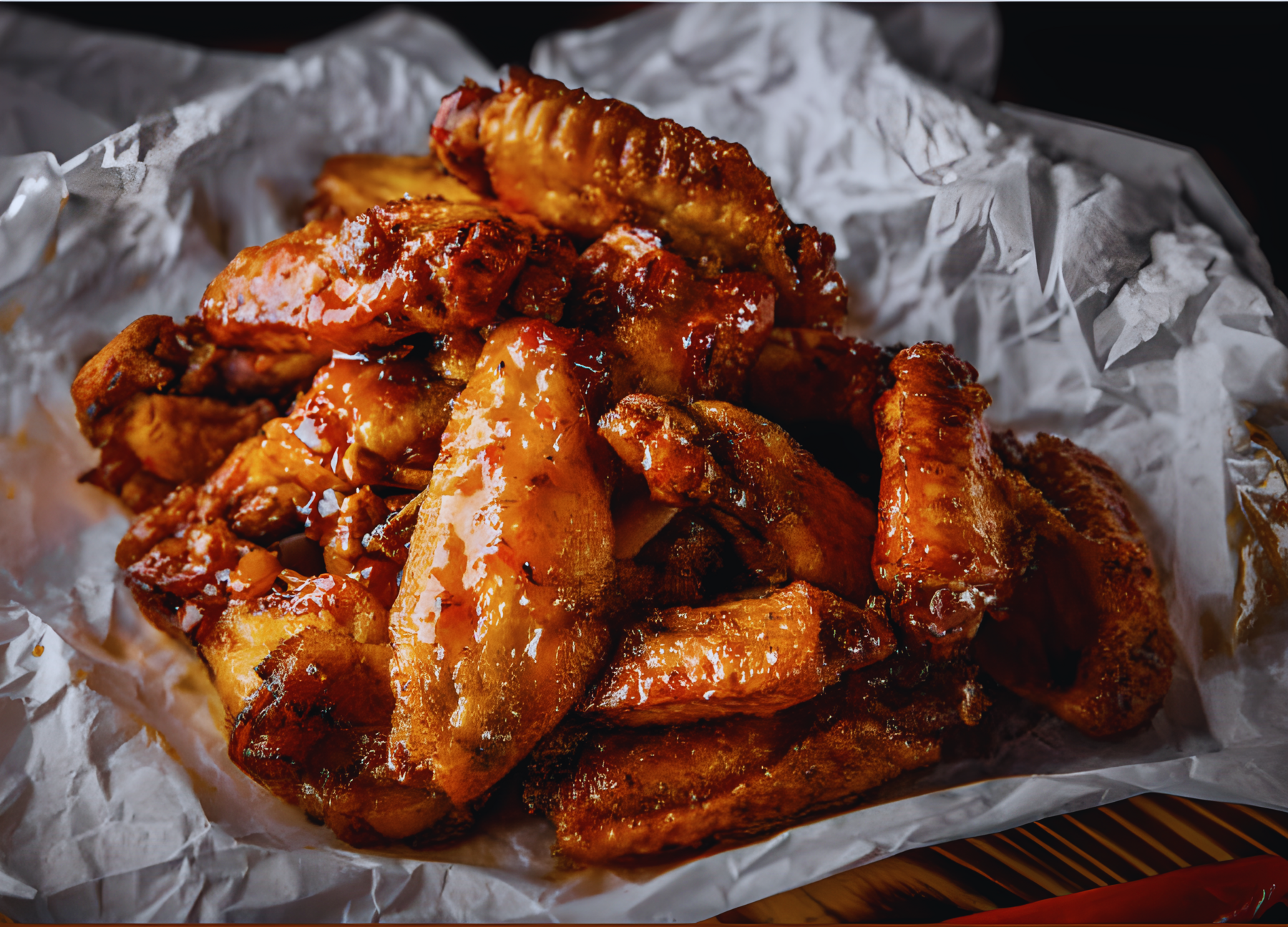
- September 16, 2025
Dear Chefs, there are few things as sacred as game day rituals: the jersey, the TV remote, and, of course,...
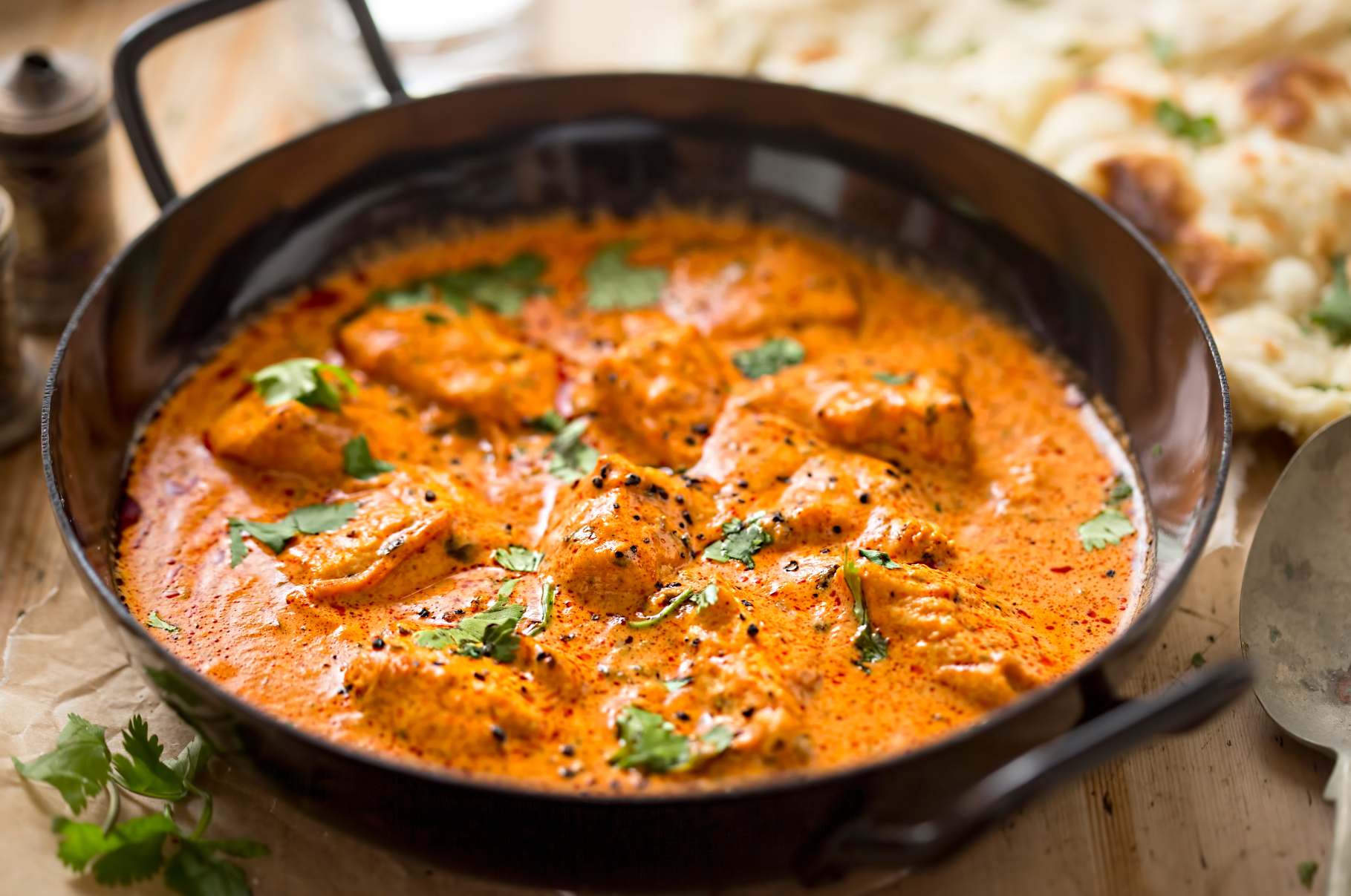
- September 11, 2025
Dear Chefs, some dishes don’t just feed the stomach—they hug the soul. Butter chicken is one of those dishes, rich...
- Choosing a selection results in a full page refresh.
- Opens in a new window.
